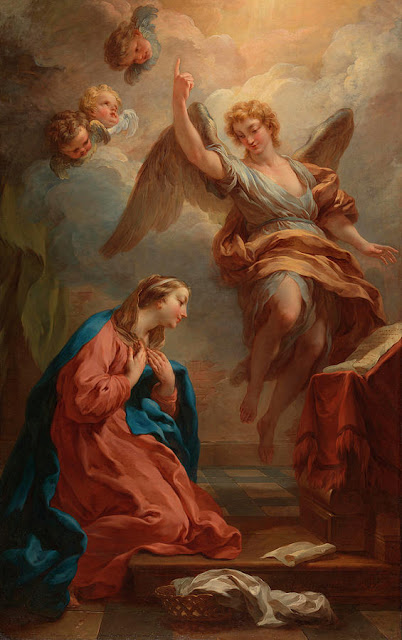Guest Post by David Martin
On EWTN’s April 14, World Over Live program hosted by Raymond Arroyo, canon law expert Fr. Gerald Murray and Robert Royal, Catholic author and president of the Faith and Reason Institute, expressed serious concerns over Pope Francis’ Apostolic Exhortation Amoris Laetita, and sympathized with concerns that many Catholics are having about the "problematic" parts of the document.
For example, in Paragraph 3, Francis says that "not all discussions of doctrinal, moral or pastoral issues need to be settled by interventions of the Magisterium... Each country or region, moreover, can seek solutions better suited to its culture and sensitive to its traditions and local needs."
In other words, each country or region can decide for itself which doctrines, laws, and disciplines it will adopt according to the whims of the people. This disagrees with tradition. The Church is universal so that its laws and teachings apply equally in all places and in every age. It is man that must change to conform to God, but God never changes. His unchanging doctrine and rule of law constitute the highest good for all peoples, so that any altering of the rule shows insensitivity and negligence, and contributes to the detriment of the people.
If we have a church today that is divided, confused, and out of grace, it is precisely because of this relaxation of the rule. Catering to the people and allowing secular influence into the Church is the plan of the Freemasons to destroy the Catholic Church.
It all started at Vatican II with the introduction of cultural diversity, i.e. changes of discipline, introduction of vernacular, where "active participation of the faithful" now became the focus. For example, in Article 37 of the Concilium it states that "the Church has no wish to impose a rigid uniformity" but rather "respects the genius and talents of the various races and peoples" and even studies with sympathy "these people's way of life," so that "she admits such things into the liturgy itself." The end result today is a Church divided, and a general falling away from God.
Note that the Church before the Council was united and whole. It was unthinkable that the Church would even consider giving Communion to those living in adultery, but now the Church sanctions this in defiance of it's own teachings. Amoris Laetitia permits some divorced and civilly remarried Catholics to receive Communion with no stipulation to live as brother and sister. (Paragraph 300, note 336) Footnote 351 to Article 305 explicitly states that the "help" offered by the Church to those living in adultery can "in certain cases... include the help of the sacraments." That is, the Church helps adulterers by giving them Communion.
This not only breaks with the Church's centuries old discipline on the reception of Communion, but constitutes a change of doctrine, since altering the discipline now proclaims to the Church that adultery is no longer a mortal sin.
The pope in Amoris Laetita says that the Eucharist "is not a reward for the perfect," so who then are the beneficiaries of this reward? The Eucharist is a reward, not for the perfect, but for those striving to "be perfect, as also your heavenly father is perfect." (Mt. 5:48) It is divine medicine for the contrite, and must be merited. It is not a formality for the casual, the lukewarm, and the ungrateful.
But especially, the Holy Eucharist is not for adulterers or those who flirt with the same sex. Jesus said, "Give not that which is holy to dogs." (Mt. 7:6) Concerning those that are divorced and civilly remarried, St. Paul warns, "Know you this and understand, that no fornicator, or unclean, or covetous person (which is a serving of idols), hath inheritance in the kingdom of Christ." (Ephesians 5:5)
According to the Apostle, the reception of the Holy Eucharist by such persons is a sacrilege, and works to their condemnation. (1 Corinthians 11:27-29) What manner of insanity is this that benched Catholics are now permitted to approach the Eucharist while their souls are degraded with sin of a mortal nature? Is Rome deliberately attempting to send these souls to Hell? Where is the mercy, Your Holiness? Your mission is to admonish and instruct souls about the proper reception of Communion, not to Protestantize them.
We pray that Pope Francis will repose confidence in the tradition of the Apostles that was passed on by his predecessors of the Petrine Office. And we pray he not listen to the rebellious spirits loosed "in the high places." (Ephesians 6:12) To long has Kasper the unfriendly ghost been haunting the Church with his weird ideas, too long have the spooks of modernism been springing their surprises on the faithful. We don't need these "gods of surprises," but we need the One True God Who never surprises His people with respect to how we are to approach Him in the Blessed Sacrament. If the Church today is in darkness, it is because the sins of the church are standing between God and his people, courtesy of our high clergy that make no effort to cure the flock of this moral leprosy.
We pray that Francis will show true mercy on souls by leveling with them and passing on to them the good things of tradition that have proved fruitful, remembering the exhortation of St. Paul: "Prove all things; hold fast that which is good." (1 Thess. 5:21)












.jpg)
.jpg)







